At a glance
Georgia is one of the countries most impacted by viral hepatitis. CDC has partnered with the country of Georgia for nearly a decade to support the world's first National Hepatitis C Elimination Program. The program provides free testing and treatment with direct-acting antivirals (DAAs) for all citizens. In 2021, Georgia achieved a 67% reduction in chronic hepatitis C virus (HCV) infection compared to 2015.
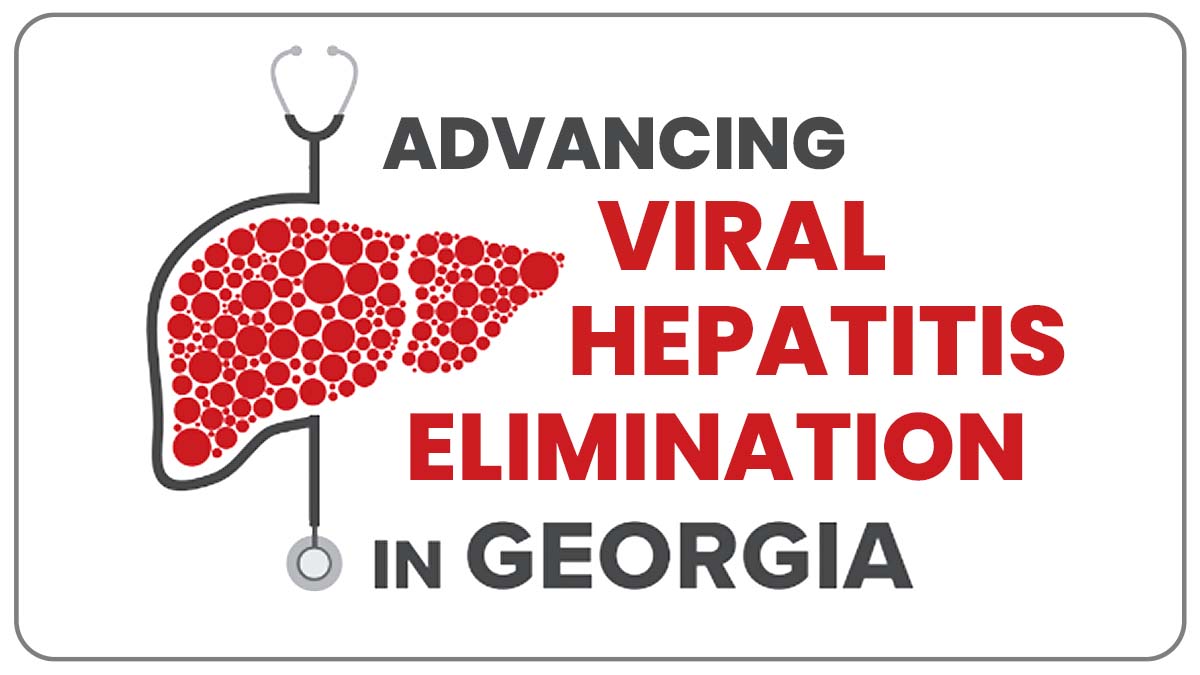
Overview of hepatitis in Georgia
In 2015 about 5%1 of adults in Georgia had current HCV infection and 3%2 had hepatitis B.
With the country being among the most highly affected by hepatitis C, CDC partnered with Georgia to launch the world's first National Hepatitis C Elimination Program3.
CDC supports Georgia as they:
- Develop a National Viral Hepatitis Strategic Plan
- Develop progress reports
- Identify and address challenges to viral hepatitis elimination
- Implement activities to achieve viral hepatitis elimination
Read or download the 2020–2021 progress report here:
In 2021, CDC worked closely with Georgian partners to develop an updated Strategic Plan for the Elimination of Hepatitis in Georgia, 2021–2025.
CDC’s role
CDC provides technical, administrative, scientific, and programmatic support to Georgian colleagues and other partners dedicated to viral hepatitis elimination in the country.
Technical assistance
CDC has provided technical assistance to develop a viral hepatitis care cascade and implement studies and interventions to scale up prevention, diagnosis, and treatment of hepatitis B and hepatitis C. This includes:
- Supporting modeling of the Hepatitis Elimination Program beginning with hepatitis C4, including cost effectiveness5, and now, building a hepatitis B elimination model.
- Supporting Georgia as they serve as a pilot country for the validation of criteria for the elimination of hepatitis B and hepatitis C.
Laboratory capacity building support
The CDC Viral Hepatitis laboratory worked with Georgian colleagues for many years to build viral hepatitis laboratory capacity and develop an external quality assurance process. This resulted in Georgia's Richard Lugar Center for Public Health Research being designated in 2022 as a World Health Organization Collaborating Center for Viral Hepatitis Elimination6 and serving as a reference laboratory and training hub for the region.
Staffing support
Since 2016, CDC has supported Georgian epidemiologists to provide day-to-day support for the Hepatitis Elimination Program. These consultants work with CDC colleagues to coordinate efforts and track program activities.
Meeting support and facilitation
CDC helps organize and facilitate key meetings held annually to support the Hepatitis Elimination Program.
- The Technical Advisory Group (TAG) meeting, chaired by the Division of Viral Hepatitis director, comprises 10–12 international viral hepatitis experts who meet annually to review program progress and provide key recommendations to assist in reaching elimination targets.
- The Hepatitis Elimination Workshop is held each year to provide in-country partners an opportunity to discuss program planning and implementation based on the TAG recommendations.
- The Scientific Committee, co-chaired by Georgia's National Center for Disease Control and Public Health (NCDC) and CDC, meets monthly to coordinate hepatitis C and hepatitis B research activities and propose research topics relevant to achieving viral hepatitis elimination goals.
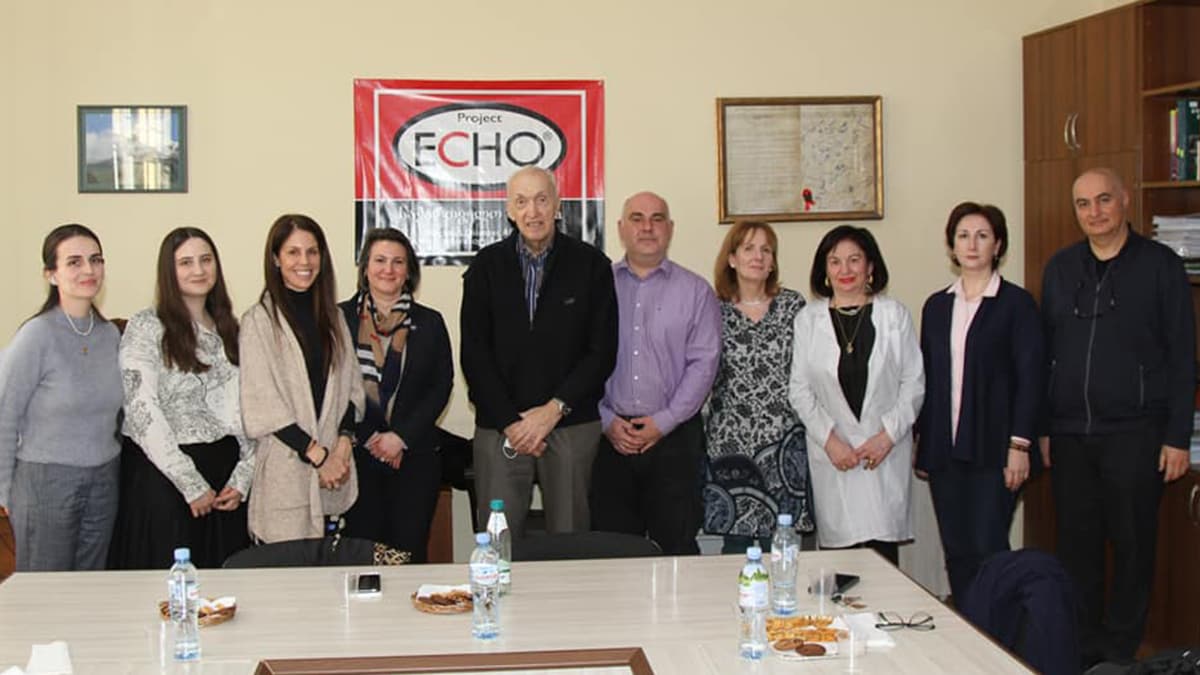
Impact
In 2021, to document the impact of hepatitis C treatment scale-up on disease burden, CDC supported Georgia with the design, implementation, and analysis of a second nationwide viral hepatitis serosurvey to assess the burden of hepatitis B and hepatitis C in Georgia.
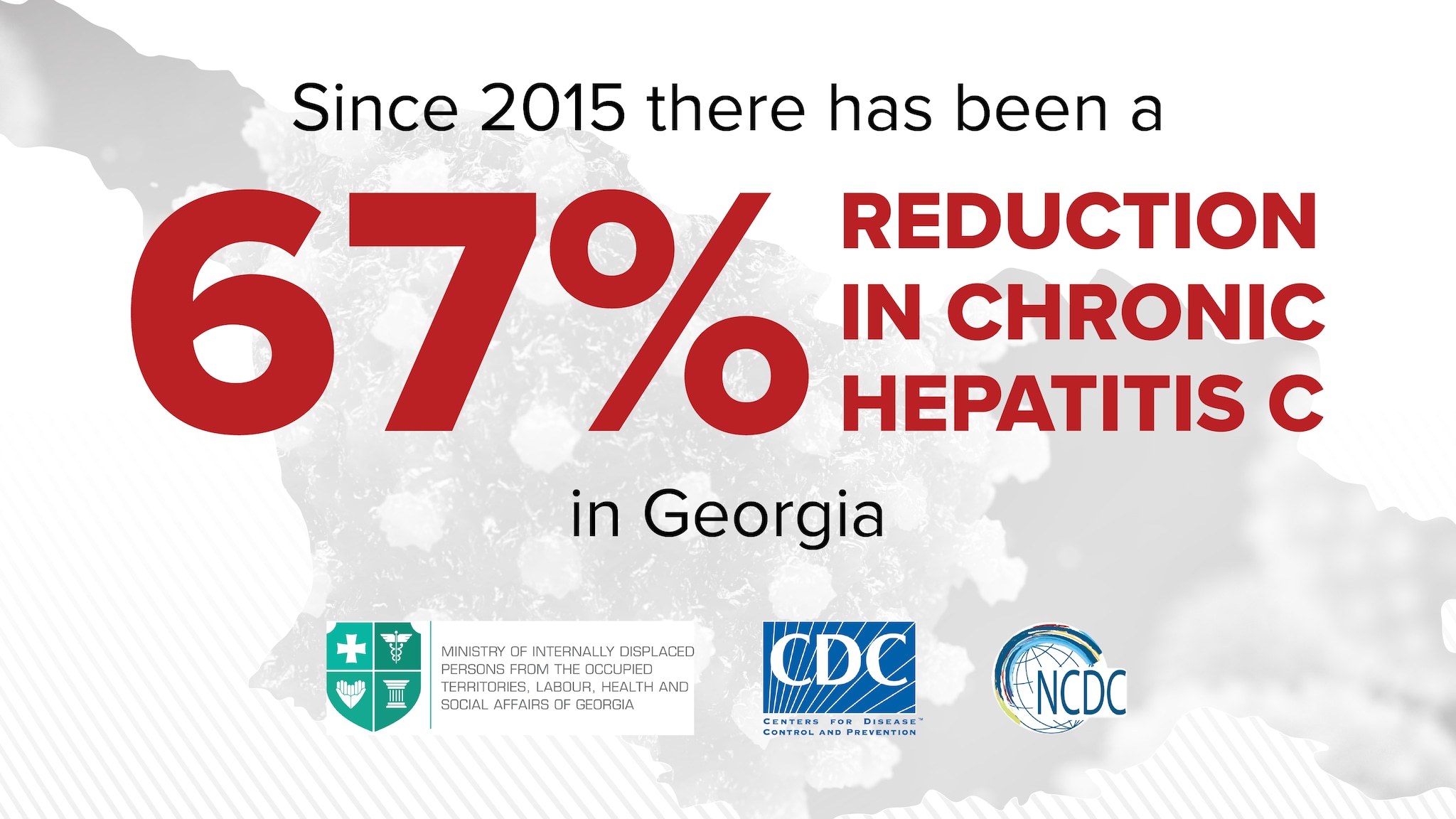
Results showed:
- Nearly 2% of adults had HCV infection, indicating a 67% reduction since 2015. 7
- Nearly 3% of adults had chronic hepatitis B virus (HBV) infection, indicating no decrease in disease burden compared to 2015.8
- This finding triggered the incorporation of hepatitis B elimination in the 2021–2025 national Strategic Plan for the Elimination of Hepatitis.
- Approximately 0.03% of children ages 5–17 years had chronic HBV infection.8
- This result enabled Georgia to be validated by the European Technical Advisory Group of Experts to have achieved the European region hepatitis B control target and showed Georgia's progress in meeting the impact target required for validation regarding the elimination of mother-to-child transmission of HBV.9
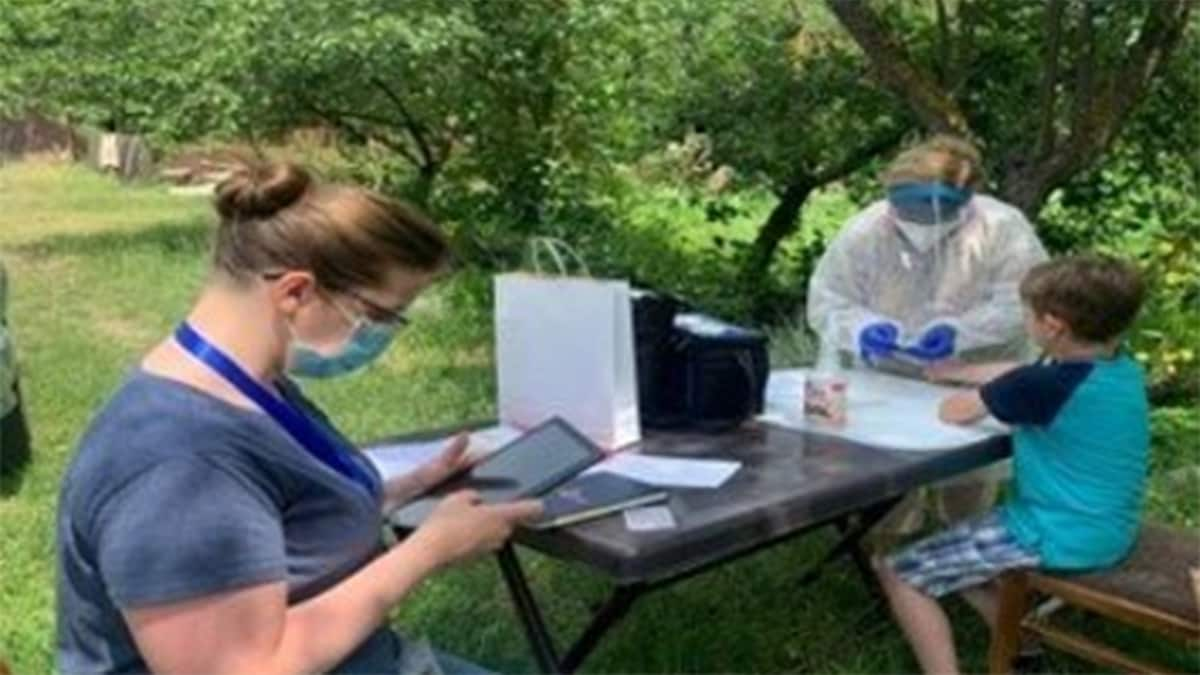
Scaling up hepatitis C diagnosis and treatment
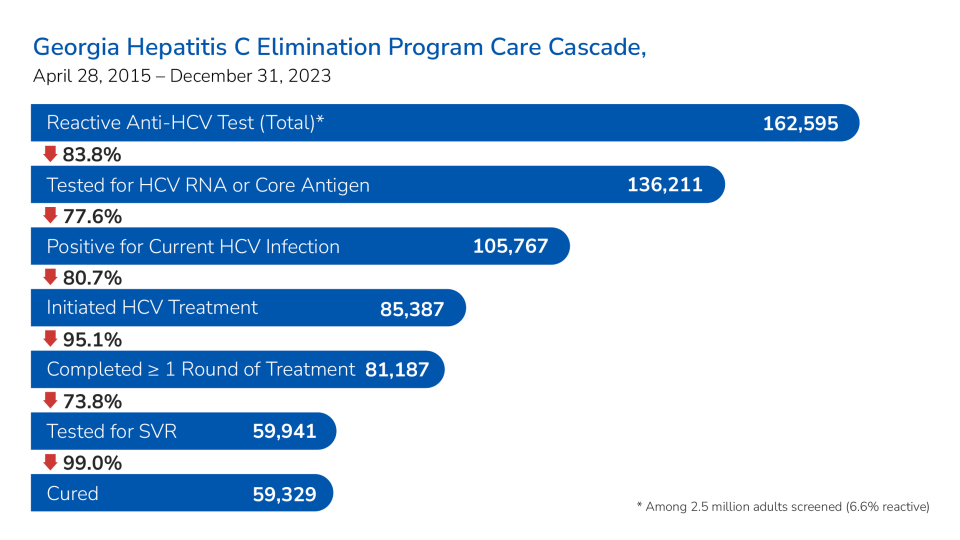
As illustrated in the chart above, by the end of December 2023:
- 2.5 million adults (87% of the adult population) were screened for HCV infection.
- 105,767 people were detected to have chronic HCV infection.
- 85,387 of those people initiated treatment.
- 99% of those who completed treatment were cured (sustained virologic response).
What’s ahead
CDC continues to provide technical support to the country of Georgia to:
- Implement innovative strategies to identify people with chronic HCV infection.
- Link those people who test positive to care.
- Scale up diagnosis and treatment of HBV infections.
- Prevent infections by vaccinating key populations.
Scientific publications
These select scientific publications were authored or co-authored by CDC scientists and/or funded by CDC.
2024
- Tohme RA, Shadaker S, Adamia E, et al. Progress Toward the Elimination of Hepatitis B and Hepatitis C in the Country of Georgia, April 2015–April 2024. MMWR Morb Mortal Wkly Rep 2024;73:660–666. DOI: http://dx.doi.org/10.15585/mmwr.mm7330a1
- Aniekwe C, Getia VK, Gvinjilia L, Manders E, Shadaker S, Schumacher IT, Mindadze M, Skhvitaridze N, Becknell S, Santas X. Key Considerations for Global Public Health Data Modernization: Lessons from Modernizing the Hepatitis C Program Data Analytics System in the Country of Georgia. JPHMP. 2024; 30(5): 643-646
- Butsashvili M, Kanchelashvili G, Aslanikashvili A, Kuchuloria T, Shadaker S, Tskhomelidze I, Tsereteli M, Kamkamidze G, Patel PR, Armstrong PA. Hepatitis B and hepatitis C testing practices and observed seroconversions among dialysis facilities in the country of Georgia. J Infect Prev. 2024. In press.
2023
- Gamkrelidze A, Shadaker S, Tsereteli M, et al. Nationwide Hepatitis C Serosurvey and Progress Towards Hepatitis C Virus Elimination in the Country of Georgia, 2021. The Journal of Infectious Diseases, September 15, 2023;228(6);684–693.
- Khetsuriani N, Gamkrelidze A, Shadaker S, et al. Toward reaching hepatitis B goals: hepatitis B epidemiology and the impact of two decades of vaccination, Georgia, 2021. Euro Surveill, 2023;28(30).
- Alkhazashvili M, Bloch E, Shadaker S, et al. Advancing blood transfusion safety using molecular detection in the country of Georgia. Transfusion Clinique et Biologique, 2023;30(3);307–313; ISSN 1246–7820.
- Gvinjilia L, Baliashvili D, Shadaker S, et al. Impact of Hepatitis C Virus (HCV) Infection and Treatment on Mortality in the Country of Georgia, 2015–2020. Clinical Infectious Diseases, August 1, 2023;77(3);405–413.
- Baliashvili D, Blumberg HM, Gandhi NR, et al. Hepatitis C care cascade among patients with and without tuberculosis: Nationwide observational cohort study in the country of Georgia, 2015–2020. PLoS Med, May 4, 2023;20(5):e1004121.
- Walker JG, Tskhomelidze I, Shadaker S, et al. Insights from a national survey in 2021 and from modelling on progress towards hepatitis C virus elimination in the country of Georgia since 2015. Euro Surveill, 2023;28(30):pii=2200952.
- Handanagic S, Shadaker S, Drobeniuc J, et al. Lessons learned from global hepatitis C elimination programs. The Journal of Infectious Diseases, 2023, jiad198.
2022
- Baliashvili D, Averhoff F, Kasradze A, et al. Risk factors and genotype distribution of hepatitis C virus in Georgia: A nationwide population-based survey. PLoS ONE, January 21, 2022;17(1):e0262935.
- Gamkrelidze A, Handanagic S, Shadaker S, The impact of COVID-19 pandemic on the 2020 hepatitis C cascade of care in the country of Georgia. Public Health, 2022;205;182–186; ISSN 0033–3506.
- Butsashvili M, Abzianidze T, Kamkamidze G, et al. Barriers of linkage to HCV viremia testing among people who inject drugs in Georgia. Subst Abuse Treat Prev Policy, 17, 23 (2022).
- Baliashvili D, Blumberg HM, Benkeser D, et al. Association of treated and untreated chronic hepatitis C with the incidence of active tuberculosis disease: a population-based cohort study. Clinical Infectious Diseases, January 15, 2023;76(2);245–251.
- Shilton S, Markby J, Japaridze M, et al. Feasibility and effectiveness of HCV viraemia testing at harm reduction sites in Georgia: A prospective three-arm study. Liver International, February 7, 2022;42(4);775–786.
- Tskhomelidze I, Shadaker S, Kuchuloria T, et al. Economic evaluation of the Hepatitis C virus elimination program in the country of Georgia, 2015 to 2017. Liver International, September 21, 2022;43(3);558–568.
- Butsashvili M, Zurashvili T, Kamkamidze G, et al. Door-to-door hepatitis C screening in Georgia: An innovative model to increase testing and linkage to care. Journal of Medical Screening, 2022;29(2):134–136.
- Morgan JR, Marsh E, Savinkina A, et al. Determining the lower limit of detection required for HCV viral load assay for test of cure following direct-acting antiviral-based treatment regimens: Evidence from a global data set. Journal of Viral Hepatitis March 12, 2022;29(6);474–486.
- World Health Organization. Criteria for validation of elimination of viral hepatitis B and C: report of seven country pilots. Geneva, 2022.
Selections from previous years
- Mitruka K, Tsertsvadze T, Butsashvili M, et al. Launch of a Nationwide Hepatitis C Elimination Program — Georgia, April 2015. MMWR Morb Mortal Wkly Rep, 2015;64(28);753–757.
- Gvinjilia L, Nasrullah M, Sergeenko D, et al. National Progress Toward Hepatitis C Elimination — Georgia, 2015–2016. MMWR Morb Mortal Wkly Rep, 2016;65:1132–1135.
- World Health Organization. Recommendations and guidance on hepatitis C virus self-testing. July 15, 2021.
- Nasrullah M, Sergeenko D, Gvinjilia L, et al. The Role of Screening and Treatment in National Progress Toward Hepatitis C Elimination — Georgia, 2015–2016. MMWR Morb Mortal Wkly Rep, 2017;66:773–776.
- Nasrullah M, Sergeenko D, Gamkrelidze A, et al. HCV elimination — lessons learned from a small Eurasian country, Georgia. Nat Rev Gastroenterol Hepatol, 2017;14;447–448.
- Hagan LM, Kasradze A, Salyer SJ. et al. Hepatitis C prevalence and risk factors in Georgia, 2015: setting a baseline for elimination. BMC Public Health, 2019;19(Suppl 3);480.
- BMC Public Health - Hepatitis C prevalence and risk factors in Georgia, 2015: setting a baseline for elimination.
- National Library of Medicine - The burden and epidemiology of hepatitis B and hepatitis D in Georgia: findings from the national seroprevalence survey.
- CDC MMWR - Launch of a Nationwide Hepatitis C Elimination Program — Georgia, April 2015.
- Walker Josephine G., Tskhomelidze Irina, Shadaker Shaun, Tsereteli Maia, Handanagic Senad, Armstrong Paige A., Gamkrelidze Amiran, Vickerman Peter. Insights from a national survey in 2021 and from modelling on progress towards hepatitis C virus elimination in the country of Georgia since 2015. Euro Surveill. 2023;28(30):pii=2200952. https://doi.org/10.2807/1560-7917.ES.2023.28.30.2200952
- Irina Tskhomelidze, Shaun Shadaker, Tinatin Kuchuloria, Lia Gvinjilia, et.al. Economic evaluation of the Hepatitis C virus elimination program in the country of Georgia, 2015 to 2017. Wiley Online Library. https://doi.org/10.1111/liv.15431.
- World Health Organization. New WHO Collaborating Centre on Viral Hepatitis Elimination opens in Georgia.
- Gamkrelidze A, Shadaker S, Tsereteli M, et al. Nationwide Hepatitis C Serosurvey and Progress Towards Hepatitis C Virus Elimination in the Country of Georgia, 2021. The Journal of Infectious Diseases, September 15, 2023;228(6);684–693.
- Khetsuriani N, Gamkrelidze A, Shadaker S, et al. Toward reaching hepatitis B goals: hepatitis B epidemiology and the impact of two decades of vaccination, Georgia, 2021. Euro Surveill, 2023;28(30).
- World Health Organization. More countries reaching hepatitis B control targets brings the WHO European Region closer to eliminating viral hepatitis as a public health threat. Geneva, April 24, 2023.

![[thumbnail] (hidden)](/hepatitis/media/images/georgia-hepatitis-elimination-progress-report-20-21-thumbnail.png)